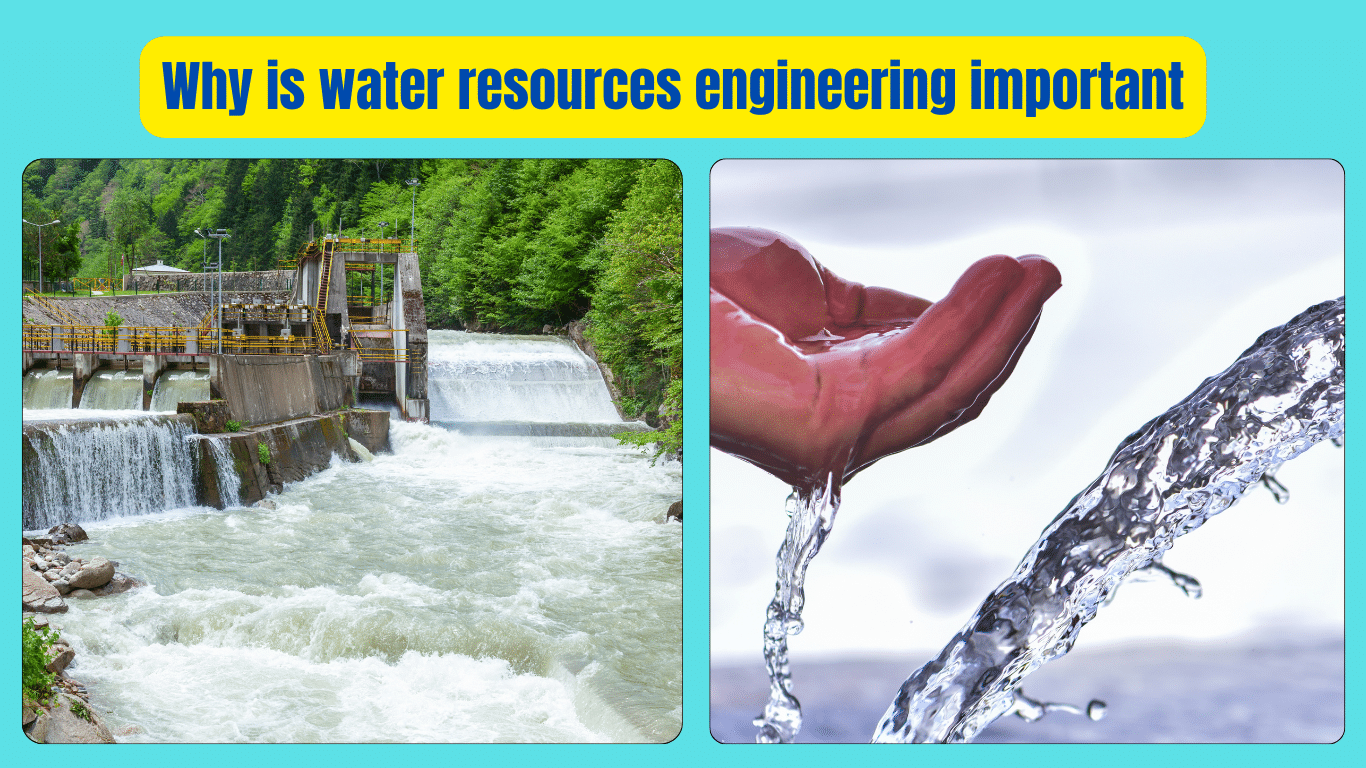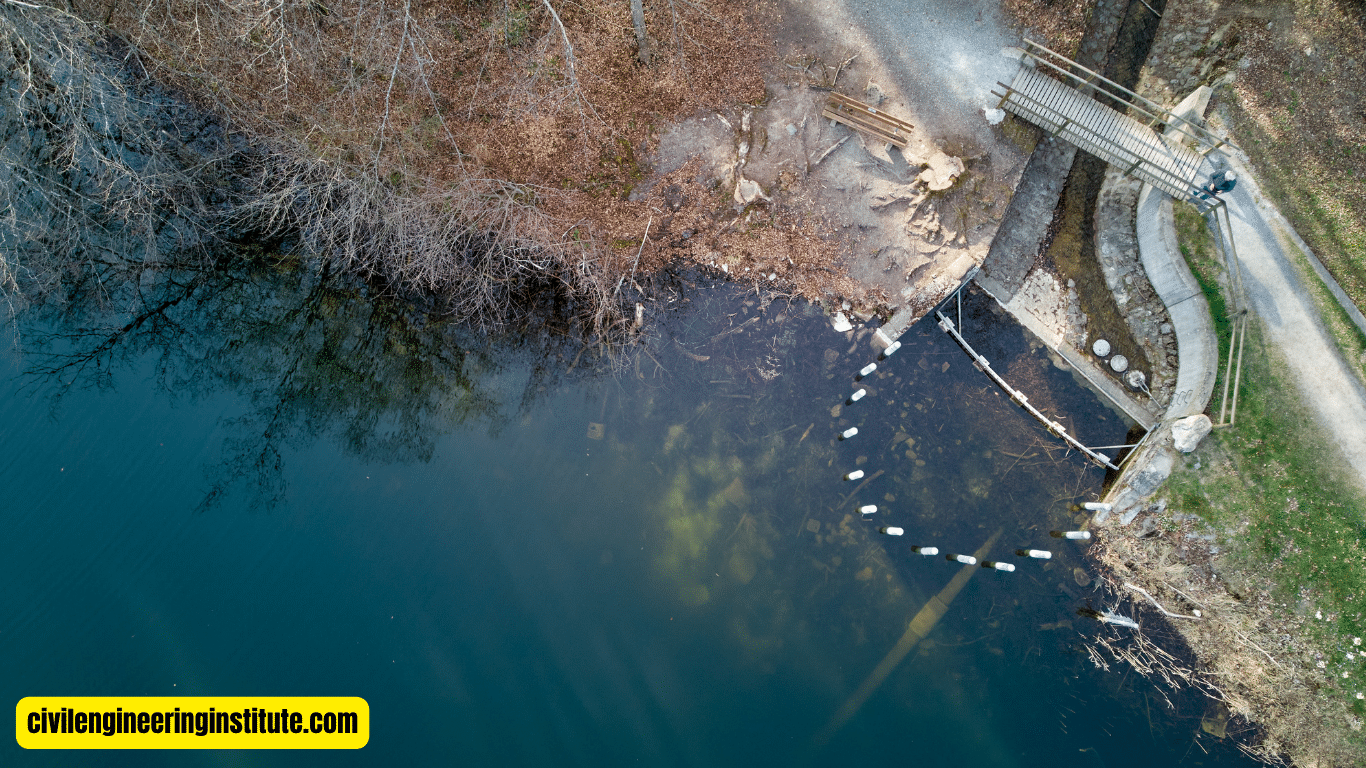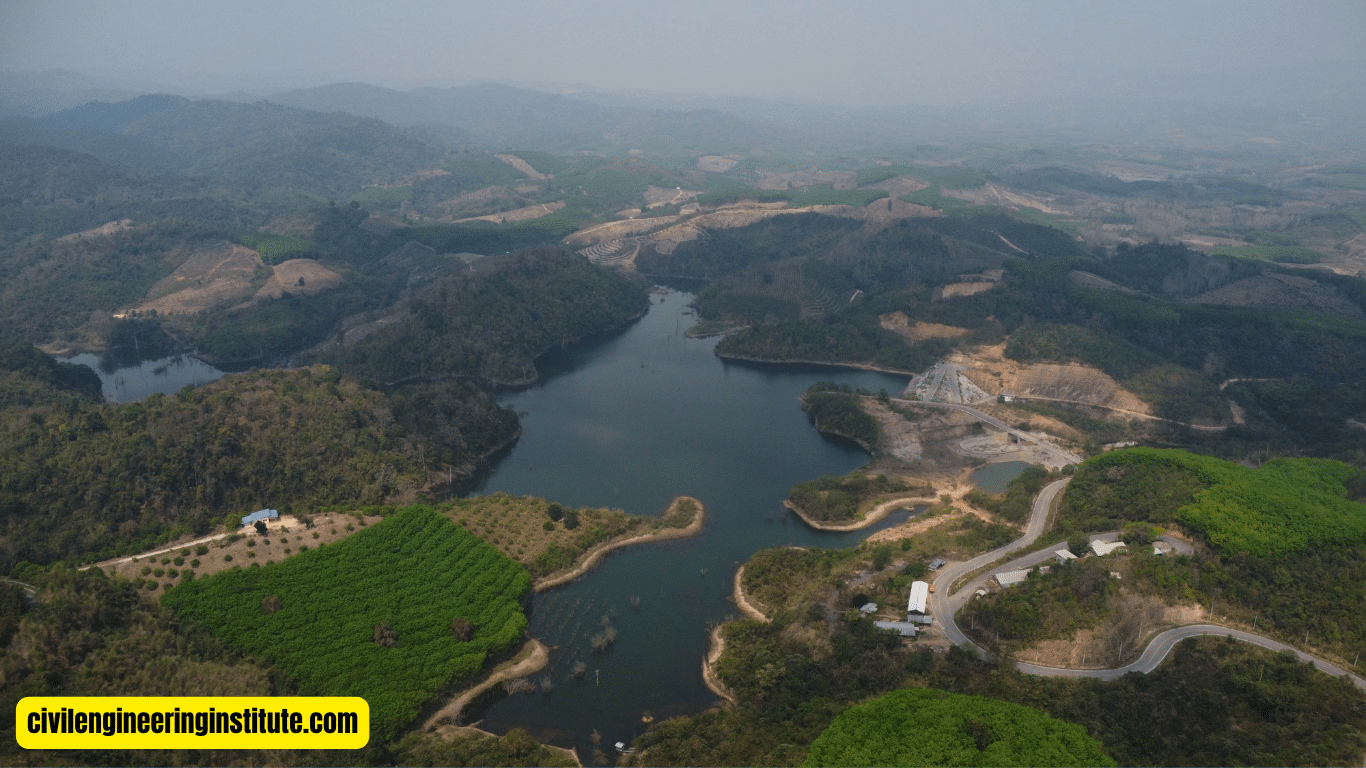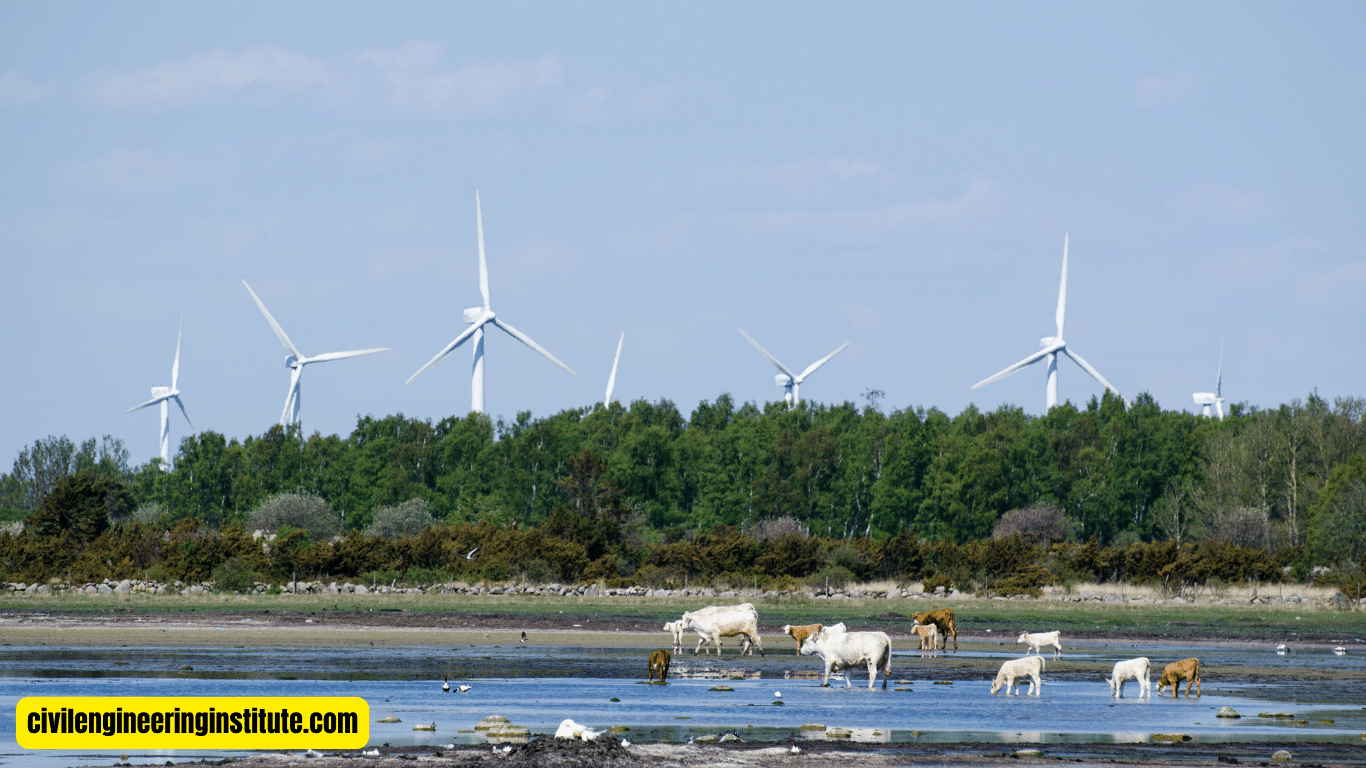Water resources engineering is of utmost importance for ensuring the sustainable management of one of our planet’s most vital resources: water. And this question: Why is water resources engineering important? This field plays a crucial role in addressing various challenges related to water availability, quality, and distribution. Firstly, water resources engineering helps in developing efficient systems for the storage, treatment, and distribution of water for drinking, agriculture, industry, and other purposes.
By designing and implementing infrastructure such as dams, reservoirs, and water treatment plants, water resources engineers ensure that communities have access to clean and reliable water supplies. Moreover, in the face of climate change and growing population pressures, water resources engineering is essential for mitigating the impacts of floods, droughts, and water scarcity through effective flood management, water conservation, and sustainable water resource planning. Overall, water resources engineering plays a critical role in safeguarding public health, supporting economic development, and preserving the environment for present and future generations.
Unlocking the Importance of Water Resources Engineering
Water is undeniably one of the most precious resources on Earth, essential for sustaining life, supporting ecosystems, and driving economic activities. In the face of increasing population growth, climate change, and environmental degradation, the role of water resource engineering has become increasingly critical. This article explores the significance of water resources engineering in ensuring the sustainable management of our planet’s water resources and addressing the challenges associated with water availability, quality, and distribution.
Understanding Water Resources Engineering: An Overview
Water resources engineering is a branch of engineering that focuses on the planning, development, and management of water-related infrastructure and systems. It encompasses a wide range of activities, including water supply and distribution, flood management, irrigation, wastewater treatment, and environmental conservation. Water resources engineers apply scientific principles, mathematical models, and engineering techniques to design and implement solutions that optimize the use of water resources while minimizing negative impacts on the environment and society.
Ensuring Access to Clean Water: Water Supply and Distribution
One of the primary objectives of water resources engineering is to ensure access to clean and reliable water supplies for drinking, sanitation, and other domestic needs. Water resources engineers design and construct water supply systems that source water from rivers, lakes, groundwater aquifers, and reservoirs. These systems include pumping stations, pipelines, storage tanks, and water treatment plants, which treat raw water to remove contaminants and pathogens, making it safe for human consumption. By providing access to clean water, water resources engineering plays a crucial role in protecting public health and enhancing the quality of life for communities worldwide.
Managing Floods and Water Scarcity: Flood Management and Water Conservation
Water resources engineering is essential for addressing water scarcity and mitigating the effects of floods, two connected problems made worse by climate change and human activity. Through the design and implementation of flood management strategies, such as levees, floodwalls, and stormwater management systems, water resources engineers help reduce the risk of flood-related disasters and protect vulnerable communities from inundation and property damage. Additionally, water resources engineering promotes water conservation practices, such as rainwater harvesting, greywater recycling, and efficient irrigation techniques, to optimize water use and minimize waste in agriculture, industry, and urban areas.
Supporting Agriculture and Food Security: Irrigation Systems
Agriculture accounts for the largest share of global water usage, making efficient irrigation systems a crucial component of water resources engineering. Water resources engineers design and optimize irrigation systems to deliver water to crops in the most efficient and sustainable manner possible. This includes the design of irrigation networks, drip irrigation systems, and precision irrigation technologies that ensure crops receive the right amount of water at the right time, minimizing water loss through evaporation and runoff. By supporting agricultural productivity and food security, water resources engineering plays a vital role in addressing global hunger and poverty.
Protecting the Environment: Environmental Conservation and Restoration
Water resources engineering is deeply intertwined with environmental conservation efforts aimed at protecting and restoring aquatic ecosystems, wetlands, and natural habitats. Water resources engineers work on projects such as river restoration, wetland creation, and habitat enhancement, which help improve water quality, enhance biodiversity, and promote ecological resilience. By incorporating principles of environmental sustainability into their designs and management practices, water resources engineers contribute to preserving natural ecosystems and ensuring the long-term health of our planet’s water resources.
Basic Queries: Why is water resources engineering important?
Why is water engineering important?
Water engineering is vital because it involves designing and managing systems that ensure access to clean water for various purposes, like drinking, sanitation, agriculture, and industry. Without proper water engineering, communities would struggle to meet their basic water needs, leading to health problems, economic setbacks, and environmental degradation.
Why is the water resource important?
The water resource is crucial because it is essential for all forms of life on Earth. Water sustains ecosystems, supports agriculture, generates energy, and provides drinking water for humans and animals. Without access to clean and reliable water sources, societies cannot thrive, and ecosystems cannot function properly.
What is the Purpose of Water Supply Engineering?
The purpose of water supply engineering is to design and manage systems that deliver safe and reliable drinking water to communities. This involves sourcing water from natural reservoirs, treating it to remove contaminants, and distributing it through pipelines to homes, businesses, and other facilities. Water supply engineering ensures that people have access to clean water for drinking, cooking, bathing, and sanitation.
Why is Water Resources Engineering Important in Civil Engineering?
Water resources engineering is important in civil engineering because it deals with managing water-related infrastructure projects like dams, reservoirs, irrigation systems, and flood protection measures. Civil engineers rely on water resources engineering principles to design and implement projects that optimize water use, mitigate flood risks, and protect the environment.
Why is the Water Project Important?
Water projects are essential because they address critical water-related challenges like water scarcity, pollution, and inadequate infrastructure. These projects aim to improve access to clean water, protect communities from floods, and promote sustainable water management practices. Without water projects, societies would struggle to meet their water needs and face serious health and environmental consequences.
What is Water Resources Engineering in Civil Engineering?
Water resources engineering in civil engineering involves designing and managing systems for water supply, flood control, irrigation, and environmental conservation. It encompasses a wide range of projects aimed at optimizing water use, protecting water quality, and ensuring the sustainability of water resources for future generations.
Why is the Water Resource Very Important for India?
The water resource is exceptionally important for India because it supports agriculture, industry, and livelihoods for millions of people. India faces challenges such as water scarcity, pollution, and inadequate infrastructure, making effective water resource management crucial for economic development, social welfare, and environmental sustainability. Investing in water projects and implementing water management strategies is essential for ensuring India’s water security and prosperity.
Conclusion
In conclusion, water resources engineering plays a pivotal role in ensuring the sustainable management of our planet’s water resources and addressing the complex challenges associated with water availability, quality, and distribution. From providing access to clean water and managing floods to supporting agriculture and protecting the environment, water resources engineering is essential for safeguarding public health, promoting economic development, and preserving the natural world for future generations. As we confront the growing pressures of population growth and climate change, the importance of water resources engineering in finding innovative solutions to water-related challenges cannot be overstated.
FAQs
Why is water resource engineering important?
Water resources engineering is important because it ensures the sustainable management of water, which is essential for human survival, agriculture, industry, and ecosystems.
What does water resource engineering involve?
Water resources engineering involves designing, managing, and optimizing systems for water supply, flood control, irrigation, and environmental conservation.
How does water resource engineering help communities?
Water resources engineering helps communities by providing access to clean water for drinking, sanitation, and irrigation, as well as protecting them from floods and other water-related hazards.
Why is water conservation important in water resource engineering?
Water conservation is important in water resources engineering to ensure the efficient use of water resources, minimize waste, and sustainably manage water for future generations.
How does water resource engineering contribute to environmental sustainability?
Water resources engineering contributes to environmental sustainability by protecting water quality, preserving natural habitats, and promoting ecosystem health through responsible water management practices.
What role does water resource engineering play in agriculture?
Water resources engineering plays a crucial role in agriculture by designing irrigation systems that optimize water use, increase crop yields, and support food production for growing populations.
How does water resource engineering address water scarcity?
Water resources engineering addresses water scarcity by implementing water conservation measures, developing alternative water sources, and managing existing water resources more efficiently.
Why is flood management important in water resource engineering?
Flood management is important in water resources engineering to protect communities, infrastructure, and ecosystems from the devastating effects of flooding, including property damage and loss of life.
How does water resource engineering support economic development?
Water resources engineering supports economic development by providing reliable water supplies for industries, facilitating trade and commerce through water transportation, and creating opportunities for recreation and tourism around water bodies.
What are the long-term benefits of investing in water resource engineering projects?
Investing in water resource engineering projects yields long-term benefits such as improved public health, increased agricultural productivity, enhanced environmental resilience, and sustained economic growth for communities and nations.





